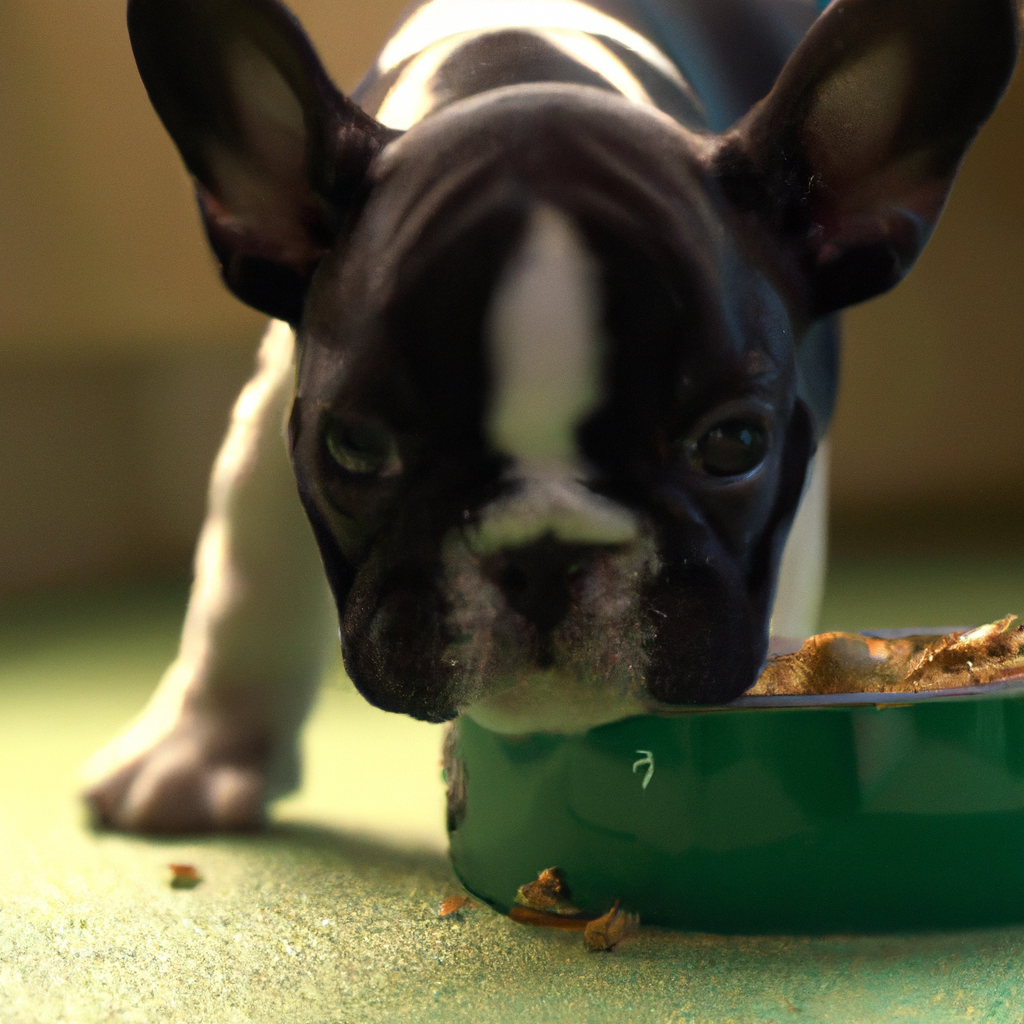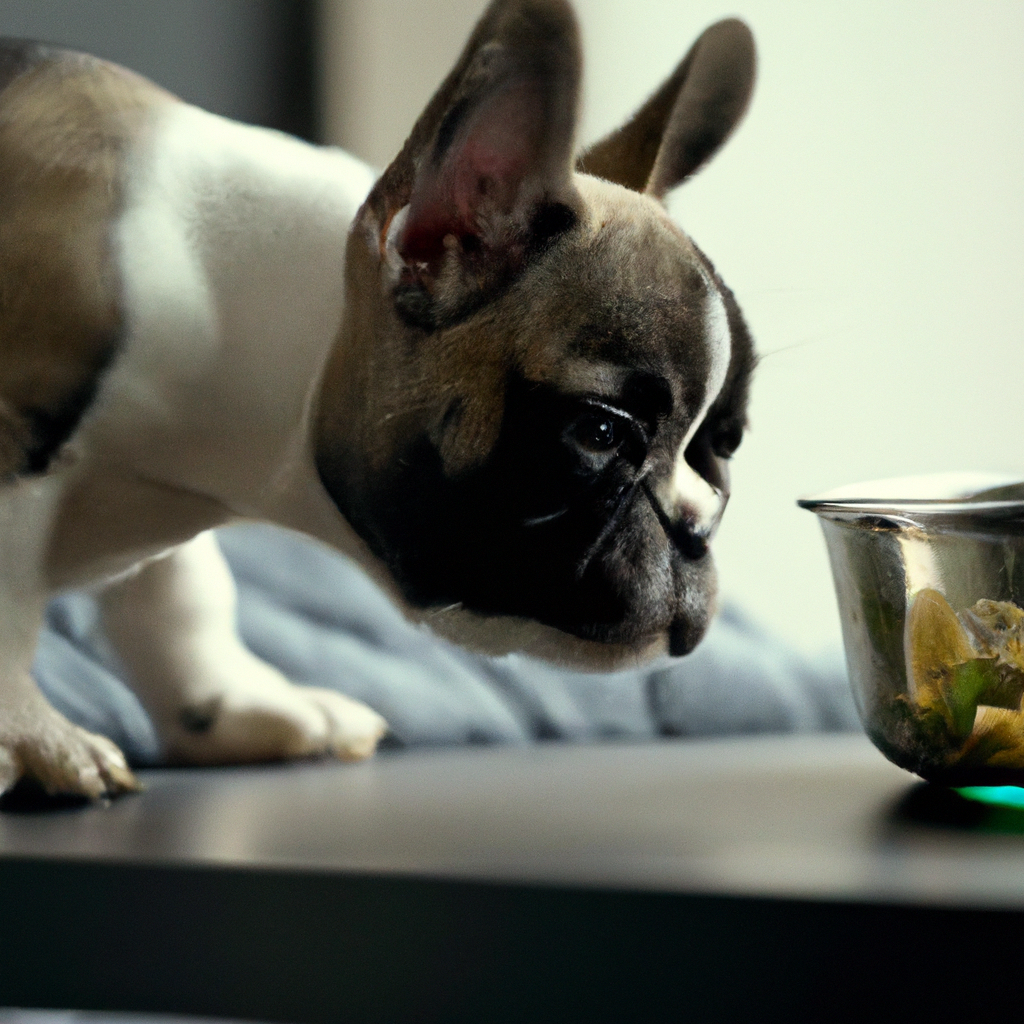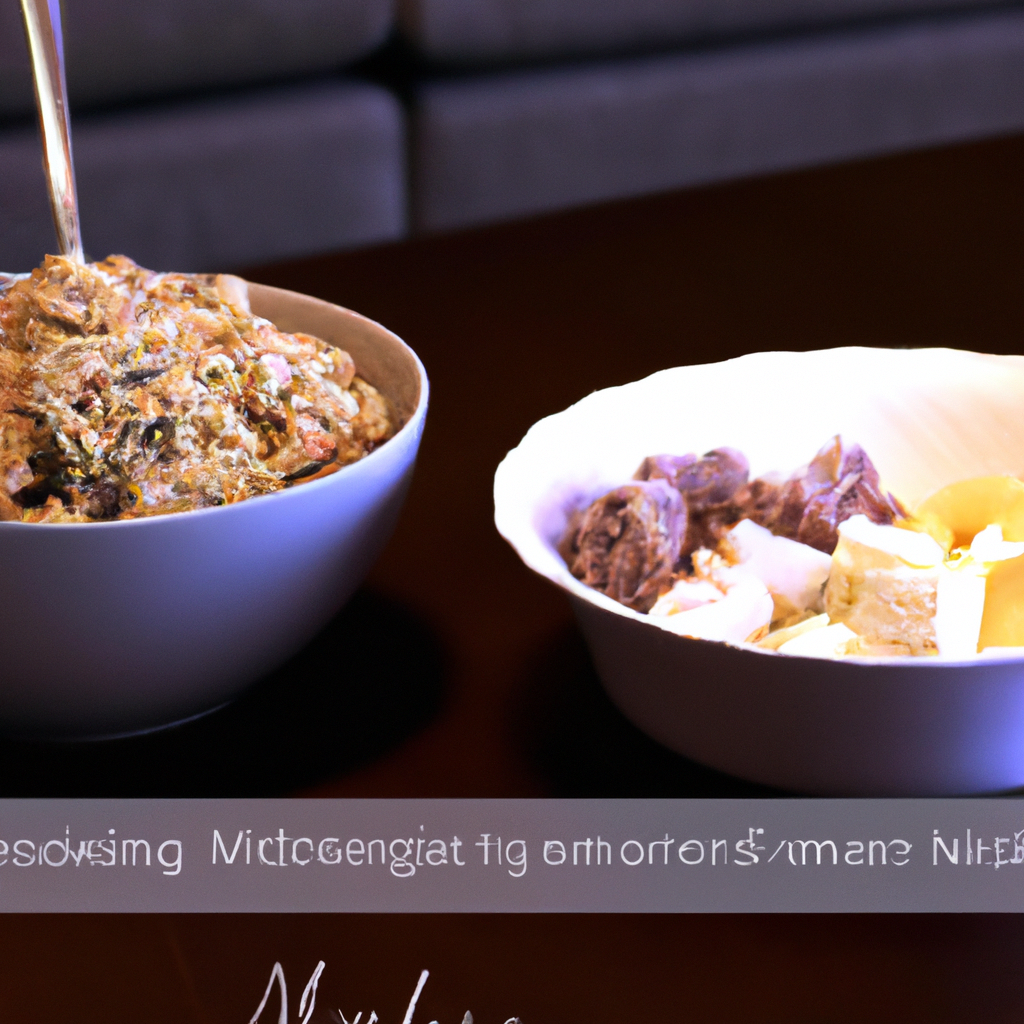Feeding Your French Bulldog Puppy: Nutritional Tips and Care – Nourishing Your Frenchie for a Healthy Start
Feeding your French Bulldog puppy is a crucial aspect of their overall health and well-being. As a responsible pet owner, it is important to provide them with a balanced and nutritious diet to support their growth and development. In this article, we will discuss some essential nutritional tips and care guidelines to ensure your French Bulldog puppy receives the proper nourishment they need for a healthy and happy life.
The Importance of a Balanced Diet for Your French Bulldog Puppy
Feeding Your French Bulldog Puppy: Nutritional Tips and Care
The Importance of a Balanced Diet for Your French Bulldog Puppy
When it comes to raising a healthy and happy French Bulldog puppy, one of the most crucial aspects to consider is their diet. Providing your furry friend with a balanced and nutritious diet is essential for their overall well-being and development. In this article, we will explore the importance of a balanced diet for your French Bulldog puppy and provide you with some valuable nutritional tips and care guidelines.
First and foremost, it is important to understand that French Bulldog puppies have specific dietary requirements that differ from adult dogs. As puppies, they are in a critical stage of growth and development, which means they need a diet that supports their rapid growth and provides them with the necessary nutrients. A balanced diet ensures that your French Bulldog puppy receives all the essential vitamins, minerals, proteins, and carbohydrates they need to thrive.
Protein is a vital component of a French Bulldog puppy’s diet. It is responsible for building and repairing tissues, promoting muscle growth, and supporting a healthy immune system. High-quality protein sources, such as lean meats, fish, and eggs, should be included in their diet. However, it is important to avoid excessive protein intake, as it can lead to health issues such as kidney problems.
In addition to protein, carbohydrates are also essential for your French Bulldog puppy’s energy needs. Complex carbohydrates, such as whole grains and vegetables, provide a steady release of energy and help maintain stable blood sugar levels. Avoid feeding your puppy excessive amounts of simple carbohydrates, such as sugary treats or processed foods, as they can lead to weight gain and dental problems.
Fats are another important component of a balanced diet for your French Bulldog puppy. They provide a concentrated source of energy and help with the absorption of fat-soluble vitamins. However, it is crucial to choose healthy fats, such as those found in fish oil or flaxseed oil, and avoid feeding your puppy excessive amounts of saturated fats, which can lead to obesity and other health issues.
When it comes to feeding your French Bulldog puppy, it is essential to establish a regular feeding schedule. Puppies thrive on routine, and having set meal times helps regulate their digestion and prevent overeating. Divide their daily food intake into several small meals throughout the day to avoid putting too much strain on their digestive system.
It is also important to choose a high-quality commercial puppy food that is specifically formulated for French Bulldogs. These foods are designed to meet the unique nutritional needs of your puppy and provide them with a balanced diet. Avoid feeding your puppy homemade or raw diets unless recommended by a veterinarian, as they may not provide the necessary nutrients in the correct proportions.
Lastly, always ensure that your French Bulldog puppy has access to fresh and clean water at all times. Hydration is crucial for their overall health and helps regulate body temperature, aids digestion, and flushes out toxins. Make sure to change their water regularly and provide them with a clean water bowl.
In conclusion, providing your French Bulldog puppy with a balanced and nutritious diet is essential for their growth, development, and overall well-being. Remember to include high-quality protein sources, complex carbohydrates, and healthy fats in their diet. Establish a regular feeding schedule and choose a commercial puppy food that meets their specific nutritional needs. And, of course, always ensure they have access to fresh water. By following these nutritional tips and care guidelines, you can ensure that your French Bulldog puppy grows up to be a healthy and happy companion.
Essential Nutrients for Healthy Growth and Development in French Bulldog Puppies
Feeding Your French Bulldog Puppy: Nutritional Tips and Care
French Bulldog puppies are adorable little bundles of energy and curiosity. As a responsible pet owner, it is crucial to provide them with the right nutrition to ensure healthy growth and development. In this section, we will discuss the essential nutrients that your French Bulldog puppy needs for optimal health.
Protein is the building block of muscle and is vital for the growth and development of your French Bulldog puppy. High-quality animal-based proteins, such as chicken, turkey, and fish, should be the primary source of protein in their diet. These proteins provide essential amino acids that are necessary for the development of strong muscles and a healthy immune system.
In addition to protein, your French Bulldog puppy requires a balanced mix of carbohydrates and fats. Carbohydrates provide energy, while fats are essential for the absorption of fat-soluble vitamins and the maintenance of healthy skin and coat. Whole grains, such as brown rice and oats, are excellent sources of carbohydrates, while healthy fats can be found in fish oil and flaxseed.
Vitamins and minerals are also crucial for the overall health of your French Bulldog puppy. Vitamin A is essential for healthy vision and a strong immune system, while vitamin D is necessary for the proper development of bones and teeth. Minerals like calcium and phosphorus are vital for bone growth and should be present in the right proportions in your puppy’s diet.
To ensure that your French Bulldog puppy receives all the necessary nutrients, it is recommended to feed them a high-quality commercial puppy food. These foods are specially formulated to meet the nutritional needs of growing puppies and often contain a balanced mix of proteins, carbohydrates, fats, vitamins, and minerals.
When choosing a commercial puppy food, look for one that lists a high-quality animal protein as the first ingredient. Avoid foods that contain fillers, artificial preservatives, and excessive amounts of grains. It is also essential to follow the feeding guidelines provided by the manufacturer to avoid overfeeding or underfeeding your puppy.
In addition to a balanced diet, fresh water should always be available to your French Bulldog puppy. Hydration is crucial for their overall health and helps maintain proper digestion and body temperature regulation. Make sure to clean and refill their water bowl regularly to ensure freshness.
As your French Bulldog puppy grows, their nutritional needs will change. It is essential to monitor their weight and adjust their food intake accordingly. Overfeeding can lead to obesity, which can have detrimental effects on their health, while underfeeding can result in stunted growth and nutrient deficiencies.
Regular visits to the veterinarian are also crucial for monitoring your French Bulldog puppy’s growth and development. Your vet can provide guidance on the appropriate diet for your puppy’s specific needs and recommend any necessary supplements.
In conclusion, providing your French Bulldog puppy with the right nutrition is essential for their healthy growth and development. A balanced diet that includes high-quality proteins, carbohydrates, fats, vitamins, and minerals is crucial. Choosing a commercial puppy food that meets these requirements and following the feeding guidelines will help ensure that your puppy receives all the necessary nutrients. Remember to monitor their weight, provide fresh water at all times, and consult with your veterinarian for any specific dietary recommendations. With proper nutrition and care, your French Bulldog puppy will thrive and grow into a healthy and happy adult dog.
Feeding Schedule and Portion Control for French Bulldog Puppies
Feeding Schedule and Portion Control for French Bulldog Puppies
When it comes to raising a healthy and happy French Bulldog puppy, proper nutrition is key. Establishing a feeding schedule and practicing portion control are essential aspects of their care. In this section, we will discuss the importance of a consistent feeding routine and how to determine the appropriate portion sizes for your furry friend.
French Bulldog puppies have specific dietary needs that differ from adult dogs. As they grow and develop, their nutritional requirements change, and it is crucial to provide them with the right balance of nutrients. A consistent feeding schedule helps regulate their digestion and prevents overeating, which can lead to obesity and other health issues.
To establish a feeding schedule, it is recommended to feed your French Bulldog puppy three to four times a day. This frequency ensures that they receive a steady supply of energy throughout the day, supporting their growth and development. It is best to divide their daily food intake into equal portions and feed them at regular intervals.
When determining the appropriate portion sizes for your French Bulldog puppy, several factors should be considered. These include their age, weight, activity level, and overall health. Consulting with your veterinarian is highly recommended to ensure that you are providing the right amount of food for your puppy’s specific needs.
As a general guideline, French Bulldog puppies should consume about 1/4 to 1/2 cup of high-quality puppy food per meal. However, it is important to remember that each puppy is unique, and their nutritional requirements may vary. Monitoring their weight and body condition is crucial in adjusting their portion sizes accordingly.
Overfeeding can lead to rapid weight gain, which can put strain on their joints and increase the risk of developing health problems such as hip dysplasia. On the other hand, underfeeding can result in malnutrition and stunted growth. Finding the right balance is essential for their overall well-being.
It is also important to note that French Bulldogs are prone to certain health issues, such as allergies and digestive problems. Therefore, it is crucial to choose a high-quality puppy food that is specifically formulated for their breed and age. Look for a brand that contains a balanced blend of protein, fat, and carbohydrates, as well as essential vitamins and minerals.
When transitioning your French Bulldog puppy to a new food, it is recommended to do so gradually. Start by mixing a small amount of the new food with their current food and gradually increase the proportion over a week or two. This gradual transition helps prevent digestive upset and allows their system to adjust to the new diet.
In addition to a balanced diet, fresh water should always be available for your French Bulldog puppy. Hydration is essential for their overall health and helps regulate their body temperature. Make sure to clean their water bowl regularly to prevent the growth of bacteria.
In conclusion, establishing a feeding schedule and practicing portion control are vital for the proper care of your French Bulldog puppy. By providing them with a consistent routine and appropriate portion sizes, you are ensuring their growth and development while minimizing the risk of health issues. Remember to consult with your veterinarian for personalized advice and choose a high-quality puppy food that meets their specific nutritional needs. With proper nutrition, your French Bulldog puppy will thrive and bring joy to your life for years to come.
Common Food Allergies and Sensitivities in French Bulldog Puppies
Common Food Allergies and Sensitivities in French Bulldog Puppies
When it comes to feeding your French Bulldog puppy, it is important to be aware of common food allergies and sensitivities that they may have. Just like humans, dogs can develop allergies to certain foods, and French Bulldogs are no exception. Being aware of these allergies and sensitivities can help you provide the best nutrition for your furry friend and ensure their overall health and well-being.
One of the most common food allergies in French Bulldogs is an allergy to grains. Grains such as wheat, corn, and soy are often used as fillers in commercial dog foods, but they can cause digestive issues and skin problems in dogs with allergies. If you notice that your French Bulldog puppy is experiencing frequent diarrhea, vomiting, or itchy skin, it may be a sign of a grain allergy. In this case, it is best to switch to a grain-free dog food that is specifically formulated for dogs with allergies.
Another common food allergy in French Bulldogs is an allergy to certain proteins. Proteins such as beef, chicken, and dairy can cause allergic reactions in some dogs. If you notice that your puppy is experiencing symptoms such as itching, redness, or gastrointestinal upset after consuming these proteins, it may be a sign of an allergy. In this case, you may need to switch to a dog food that uses alternative protein sources such as fish or lamb.
In addition to food allergies, French Bulldogs can also have sensitivities to certain ingredients. For example, some puppies may have a sensitivity to artificial preservatives, colors, or flavors that are commonly found in commercial dog foods. These additives can cause digestive upset and skin problems in sensitive dogs. If you suspect that your French Bulldog puppy has a sensitivity to these ingredients, it is best to choose a dog food that is free from artificial additives and made with natural ingredients.
It is important to note that food allergies and sensitivities can develop over time. Just because your French Bulldog puppy has been eating a certain type of food without any issues, it does not mean that they will not develop an allergy or sensitivity in the future. It is always a good idea to monitor your puppy’s reactions to different foods and consult with your veterinarian if you notice any changes in their health or behavior.
When introducing new foods to your French Bulldog puppy, it is best to do so gradually. Start by mixing a small amount of the new food with their current food and gradually increase the amount over a period of several days. This will allow their digestive system to adjust to the new food and minimize the risk of any adverse reactions.
In conclusion, being aware of common food allergies and sensitivities in French Bulldog puppies is essential for their overall health and well-being. Grain allergies, protein allergies, and sensitivities to artificial additives are all common issues that can affect these adorable pups. By choosing a high-quality dog food that is free from allergens and artificial additives, you can ensure that your French Bulldog puppy receives the nutrition they need without any negative side effects. Remember to monitor your puppy’s reactions to different foods and consult with your veterinarian if you have any concerns. With proper care and attention to their dietary needs, your French Bulldog puppy will thrive and grow into a healthy adult dog.
Homemade vs. Commercial Puppy Food: Pros and Cons for French Bulldogs
Feeding your French Bulldog puppy is an important aspect of their overall care. Providing them with the right nutrition is crucial for their growth and development. When it comes to choosing between homemade and commercial puppy food, there are pros and cons to consider, especially for French Bulldogs.
Homemade puppy food has its advantages. One of the main benefits is that you have complete control over the ingredients that go into your puppy’s food. You can ensure that they are getting high-quality, fresh ingredients without any additives or preservatives. This can be particularly beneficial for French Bulldogs, as they are prone to certain health issues such as allergies and sensitivities. By making their food at home, you can tailor it to their specific needs and avoid any potential triggers.
Another advantage of homemade puppy food is that it allows you to vary your puppy’s diet more easily. You can introduce a wider range of proteins, carbohydrates, and vegetables, providing them with a well-rounded and balanced diet. This can be especially important for French Bulldogs, as they have a tendency to become picky eaters. By offering them a variety of flavors and textures, you can help prevent them from becoming finicky eaters in the long run.
However, there are also some drawbacks to homemade puppy food. One of the main concerns is ensuring that your puppy is getting all the necessary nutrients in the right proportions. It can be challenging to achieve the right balance of proteins, fats, carbohydrates, vitamins, and minerals without the guidance of a veterinary nutritionist. Without proper nutrition, your French Bulldog puppy may not grow and develop as they should, potentially leading to health issues down the line.
Commercial puppy food, on the other hand, is specifically formulated to meet the nutritional needs of growing puppies. It undergoes rigorous testing and follows strict guidelines to ensure that it provides a complete and balanced diet. This can be reassuring for French Bulldog owners, as it takes the guesswork out of providing the right nutrients in the right amounts.
Additionally, commercial puppy food often contains added supplements such as omega-3 fatty acids, which are beneficial for a puppy’s brain and eye development. These supplements may not be easily attainable through homemade food alone. Commercial puppy food also comes in different formulas tailored to specific breeds, sizes, and health conditions, making it easier to find the right option for your French Bulldog puppy.
However, not all commercial puppy food is created equal. It’s important to choose a high-quality brand that uses real meat as the main ingredient and avoids fillers and by-products. Reading the ingredient list and understanding what each ingredient means is crucial in making an informed decision.
In conclusion, both homemade and commercial puppy food have their pros and cons for French Bulldogs. Homemade food allows for more control over ingredients and variety in the diet, but it requires careful planning and knowledge of proper nutrition. Commercial puppy food, on the other hand, provides a convenient and reliable option that meets the nutritional needs of growing puppies. Ultimately, the choice between homemade and commercial puppy food should be based on what works best for your French Bulldog puppy’s individual needs and your own capabilities as a pet owner.
Q&A
1. What is the recommended feeding schedule for a French Bulldog puppy?
Feed your French Bulldog puppy three to four small meals per day until they are around six months old, then transition to two meals per day.
2. What type of food should I feed my French Bulldog puppy?
Choose a high-quality, balanced puppy food that is specifically formulated for small breeds. Look for ingredients like meat, vegetables, and whole grains.
3. How much food should I give my French Bulldog puppy?
Follow the feeding guidelines on the puppy food packaging, but adjust the amount based on your puppy’s individual needs. Monitor their weight and body condition to ensure they are not over or underfed.
4. Can I give my French Bulldog puppy treats?
Yes, you can give your French Bulldog puppy treats, but do so in moderation. Choose healthy, puppy-friendly treats and factor them into their overall daily calorie intake.
5. Are there any foods that are toxic to French Bulldogs?
Yes, some foods can be toxic to French Bulldogs, including chocolate, grapes, raisins, onions, garlic, and certain artificial sweeteners. Avoid feeding these foods to your puppy.In conclusion, feeding your French Bulldog puppy requires careful attention to their nutritional needs and proper care. It is important to provide them with a balanced diet that includes high-quality protein, healthy fats, and essential vitamins and minerals. Avoid overfeeding and monitor their weight to prevent obesity. Regular veterinary check-ups and consultation with a professional can help ensure that your French Bulldog puppy receives the necessary nutrients for their growth and development.





